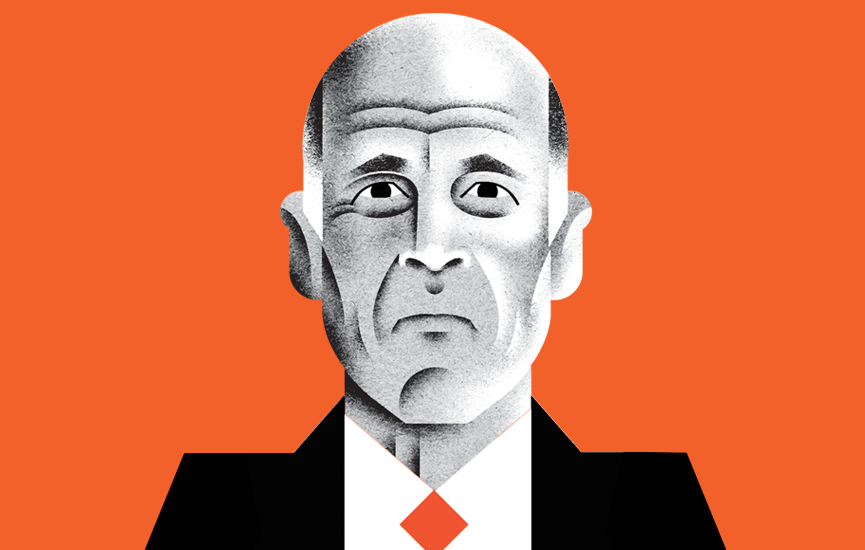Q: California is the world’s sixth-largest economy, and you recently signed a $171 billion budget. How much impact do the actions that your state takes affect other economies?
A: It depends on the issue and the overall context in the country and the world. In terms of climate change, California has had a big impact, and we are continuing to advance a very imaginative climate agenda and I do think that is influencing other states and regions throughout the world.
Immigration is another area where California has been very openhearted and that has some influence, though obviously states like Arizona have a very different set of laws.
We’re now seeing a presidential campaign between someone who’s spent most of her career in politics and someone who’s spent all of his adult life in the private sector. You’ve been in politics virtually your entire career. When it comes to wielding political power, how much does experience in politics matter?
It depends very much on the individual—the character, the wisdom, the skills of diplomacy and speaking and persuasive abilities. Ronald Reagan ran as an actor with no government experience and was elected governor of California, then president of the United States. An outsider can be disruptive in a positive sense, but it can turn out poorly. There’s a lot to be said for experience in the judgment of people when you’ve lived a while and been an adult for several decades. You’ve had many experiences for relationships, hiring people—that’s an eye that you develop over time, and because I have the experience, I know a great deal of people. And these larger social, political and economic questions are not like arithmetic, two plus two equals four. They’re interpretive. They lend themselves to a range of perspectives and conclusions. And therefore a great deal of how you see the world is how you’ve experienced it.

If you look at Eisenhower and keeping America out of war, bringing the Korean War to a close, he had great experience because he was the commander of the war in Europe. Kennedy came along—bolder, New Frontier, but certainly not the same experience. And he pushed the country down a direction that others followed. Whether it’s Vietnam or Iraq and Afghanistan, there’s been a lot of actions and engagements that I think Eisenhower might have had a different perspective on. So I would say wisdom born of age and insight is very valuable, but when the system is very stagnant and needs a good shaking, then someone who is not part of it can come in with a fresh perspective.
After your first governorship, you spent time studying Buddhism and performing service work with Mother Teresa. How have those experiences affected the way you wield power?
Well, I wouldn’t limit how I understand my job and my responsibilities to the time I spent with Mother Teresa or my experience with studying Zen meditation in Japan. I would say that it deepened my understanding of impermanence and the endless illusions that the human mind is privy to—that’s the Zen part. On Mother Teresa, what I took away from that experience was how one person, through their faith and their belief and capacity to take original action, can do extraordinary things.
In a time when bipartisanship at a national level is pretty much nonexistent, you’ve been able to work well with both Republicans and Democrats in your state. How have you done that, and does your example hold any lessons for folks in Washington?
I have worked hard with Republicans, with the Republican-affiliated groups like the Chamber of Commerce, the Farm Bureau and the like, even though those groups are in the minority in terms of political power, and it has been helpful. I would encourage people in the federal government or the states not to be confident that their party has a monopoly on the truth, but in fact their group has a limited understanding and commitment to what needs to be done. Republicans have certain tendencies, Democrats have some different ones. Both can be positive, both can be negative. Working with both, as the executive can do through the power of collaboration and negotiation, is a positive idea.

There’s always a time for partisanship, and yet the generation of partisanship and polarization and mindless political combat is very counterproductive. It’s weakening America as a great nation and stands as a real obstacle to dealing with profound issues that affect society. Whether it’s transportation, climate policies, taxation, immigration or nuclear weapons, there are big issues, and it really does take members of both parties in some percentage if success is to be had. It’s not only pathetic, it’s very low consciousness the way the high jinks of Washington are playing themselves out.
In an attempt to appeal to African American voters, Donald Trump has recently been articulating a vision of black urban life that is pretty grim—basically, filled with relentless poverty and unceasing violence. You were mayor of Oakland. Do you agree with that characterization?
I doubt whether Donald Trump has been in many of the places he’s imagining. As the mayor of Oakland, I can tell you about the vitality of that city and many others. That doesn’t mean there aren’t places where crime is much higher and the situation can be very desperate, so there is much work to be done. But I don’t think he appreciates the dynamism of African American lower-income communities or other lower-income communities.
Your governorship ends in January 2019. What do you hope to accomplish in the rest of your tenure?
I would like to pass the Public Safety and Rehabilitation Act, which I think is way overdue for the California prison system. I would like to keep working on the local-control funding formulas. I would like to advance various building projects like high-speed rail and the water fix that is absolutely crucial to maintaining Silicon Valley and many cities and farms in California. I’d like to advance alternatives in education by online modalities, which I think would lower the cost of education.
And there’ll be other things along the way. The governorship is a dynamic position and things come up, whether it’s forest fires or earthquakes or crime waves or drought, and we respond. It’s not the nature of life to be without challenge.







